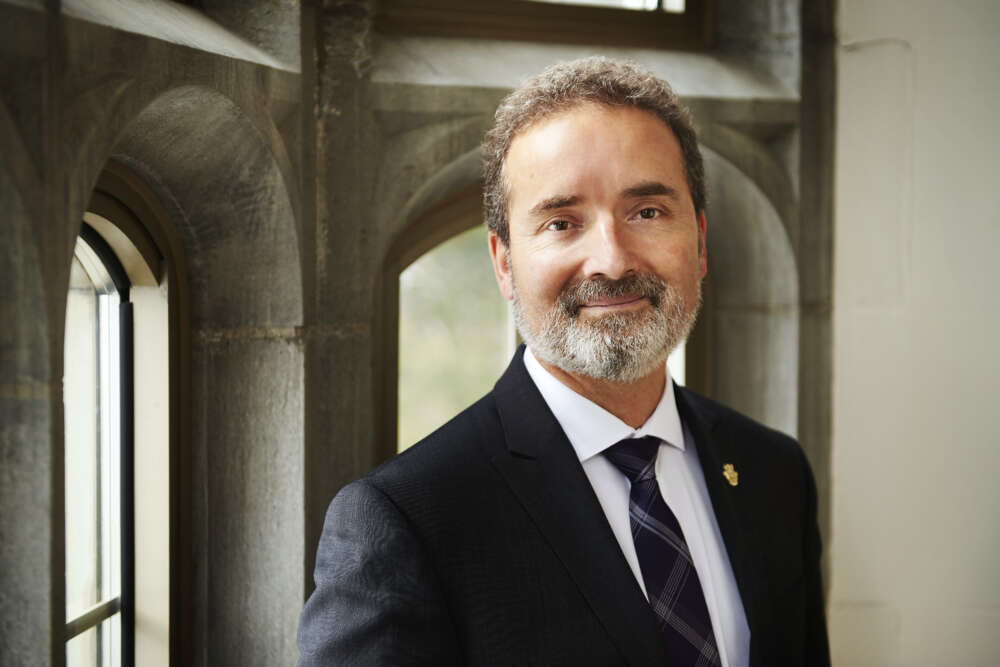
Dr. Rene Van Acker has been reappointed dean of the Ontario Agricultural College (OAC) for a five-year term.
The decision follows a review by a committee of faculty, students and staff led by Dr. Gwen Chapman, provost and vice-president (academic). The effective renewal date is Sept. 1, 2021.
“Under Dr. Van Acker’s leadership and guidance, OAC has experienced incredible growth and attained new levels of excellence, allowing us to remain at the forefront of agriculture and food, nationally and globally,” Chapman said.
She said Van Acker’s innovation and commitment were cited by the review committee as vital to OAC’s success, especially during the COVID-19 pandemic.
“Rene helped his college navigate through uncertain times, making important changes and adaptations amid the global pandemic while also increasing OAC’s reputation for research, teaching and learning, and service,” Chapman said.
In particular, Van Acker’s strong and successful relationships with the agri-food sector, alumni, government and industry partners have led to new partnerships and programs and higher enrolment, she said.
“I look forward to even greater achievements in the years ahead,” Chapman said. “I know the U of G community will join me in congratulating Rene on his reappointment.”
In making the announcement, Chapman thanked the review committee for its service and the U of G community for its input.
As OAC dean, Van Acker developed a framework and vision for the college through a new strategic plan, a new infrastructure master plan (the first in more than 40 years) and OAC’s first experiential learning strategy.
He led the creation of new educational platforms, including the bachelor of Indigenous environmental science and practice program (the first of its kind in Canada) and course-based master’s programs in food safety and quality assurance, and dairy technology and management.
Van Acker has helped develop the Arrell Food Institute, the Guelph Centre for Urban Organic Farming, the new Guelph Turfgrass Institute and the Guelph Food Innovation Centre.
He has also helped raise more than $90 million for OAC and facilitated the establishment of more than 20 externally funded chairs and professorships.
A donor-funded student recruitment program that Van Acker helped launch has increased OAC’s undergraduate student population by almost 50 per cent.
“I am grateful, honoured and excited to be appointed as dean of OAC for a second term,” he said. “The relevance of the college to the research, outreach, skills development and education needs that serve society and our future continues to grow. I am especially keen to continue to push for enrolment growth, given the tremendous demand for OAC graduates.”
Previously, Van Acker was OAC’s associate dean (external relations), and chaired the Department of Plant Agriculture from 2006 to 2009. A leading expert on weed management and biosafety, he remains an active faculty member, supervising graduate students and teaching. He has published more than 130 peer-reviewed papers.
Before joining U of G in 2006, he was an assistant professor in the Department of Plant Science at the University of Manitoba. He has been an adjunct professor at Dalhousie University since 2014.
He serves on many key U of G committees, including the Integrated Financial Planning Committee and Senate’s Board of Undergraduate Studies. Externally, he is a board member of the Rural Ontario Institute and president-elect of the deans’ council, agriculture, food and veterinary medicine.
He holds a B.Sc. in crop science and a master’s degree in weed science from U of G, and a PhD in crop-weed ecology from the University of Reading in the United Kingdom.
